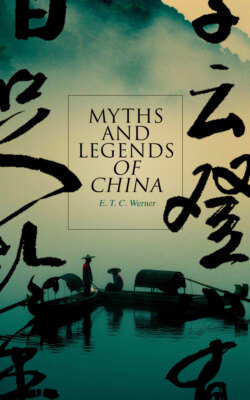Читать книгу Myths and Legends of China - E. T. C. Werner - Страница 56
На сайте Литреса книга снята с продажи.
Myth and Doubt
ОглавлениеIt will bear repetition to say that unless the myth-builder firmly believes in his myth, be he the layer of the foundation-stone or one of the raisers of the superstructure, he will hardly make it a living thing. Once he believes in reincarnation and the suspension of natural laws, the boundless vistas of space and the limitless æons of time are opened to him. He can perform miracles which astound the world. But if he allow his mind to inquire, for instance, why it should have been necessary for Elijah to part the waters of the Jordan with his garment in order that he and Elisha might pass over dryshod, or for Bodhidharma to stand on a reed to cross the great Yangtzu River, or for innumerable Immortals to sit on 'favourable clouds' to make their journeys through space, he spoils myth—his child is stillborn or does not survive to maturity. Though the growth of philosophy and decay of superstition may be good for a nation, the process is certainly conducive to the destruction of its myth and much of its poetry. The true mythologist takes myth for myth, enters into its spirit, and enjoys it.
We may thus expect to find in the realm of Chinese mythology a large number of little hills rather than a few great mountains, but the little hills are very good ones after their kind; and the object of this work is to present Chinese myth as it is, not as it might have been had the universe been differently constituted. Nevertheless, if, as we may rightly do, we judge of myth by the sentiments pervading it and the ideals upheld and taught by it, we shall find that Chinese myth must be ranked among the greatest.
